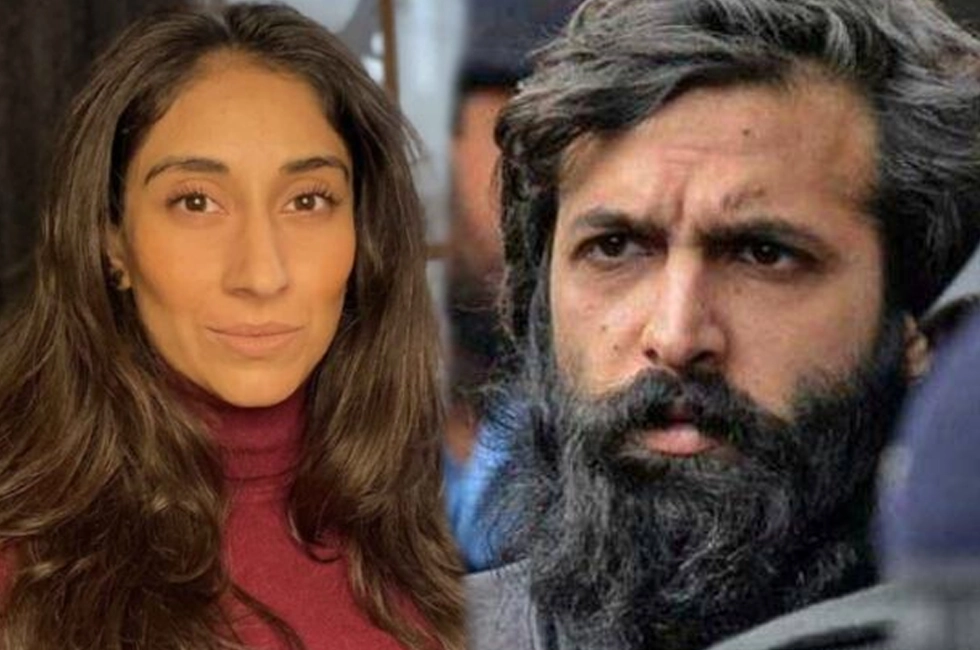- Web Desk
- Feb 24, 2026
Noor Mukadam case: SC upholds death sentence for Zahir Jaffer
-

- Ahsan Wahid Web Desk
- May 20, 2025

ISLAMABAD: The Supreme Court on Tuesday upheld the death sentence of Zahir Jaffer in the Noor Mukadam murder case, reaching a legal closure to a crime that shook the nation in 2021. A three-member bench of the Supreme Court, headed by Justice Hashim Khan Kakkar, resumed the hearing of high-profile Noor Mukadam murder case on Tuesday. The three-member bench was led by Justice Hashim Kakar and included Justices Ishtiaq Ibrahim and Ali Baqar Najafi.
The bench maintained death penalty for murder charges for Zahir Jaffer, life imprisonment for rape (reduced from original death sentence), reduced kidnapping sentence from 10 years to one-year with labour. The court also upheld compensation order for victim’s family while the sentences for the the guard and gardener have been reduced to four years from 10 years. Given they have already served their four years, they will walk free after the verdict.
The bench confirmed the trial court’s original conviction while modifying some sentences:
- Murder: Death penalty maintained (confirmed by Islamabad High Court earlier)
- Rape: Death sentence commuted to life imprisonment
- Kidnapping: 10-year sentence reduced to 1 year
- Compensation: Rs500,000 payment to victim’s family upheld
The gruesome killing of 27-year-old Noor Mukadam, daughter of former diplomat Shaukat Mukadam, in July 2021 became a national rallying point against gender-based violence. Evidence showed she was tortured and beheaded at Jaffer’s Islamabad residence.
Can Zahir Jaffer still escape death penalty?
Despite the Supreme Court’s final verdict upholding Zahir Jaffer’s death sentence, constitutional provisions still allow for potential relief through presidential clemency. Article 45 of Pakistan’s Constitution empowers the President to grant pardons, reprieves or respites, and to remit, suspend or commute any court-ordered sentence, including capital punishment.
This legal avenue remains available now that all judicial appeals have been exhausted, though historical precedent suggests such interventions are exceptionally rare in death penalty cases. The constitutional clause specifically states that “the President shall have power to grant pardon, reprieve and respite, and to remit, suspend or commute any sentence passed by any court, tribunal or other authority,” leaving this as Jaffer’s last possible recourse to avoid execution following the conclusion of his appeals process.
The hearing today
During the proceedings, Zahir Jaffer’s defence counsel, Salman Safdar, presented his arguments, asserting that the prosecution’s entire case relies on CCTV footage and DVR recordings. Justice Kakkar observed that the defence had already accepted the authenticity of the CCTV footage in question.
After Safdar concluded his arguments, the court turned to the lawyers representing the watchman and gardener, who are also convicted in the case.
The lawyers for the watchman and gardener, both sentenced to 10 years in prison, argued that their clients’ only crime was being present in the house at the time of the incident: “The prosecution alleges they prevented the victim from leaving, but had they not stopped her, the outcome might have been different.”
Justice Ali Baqar Najafi questioned the motive, asking, “If they were merely employees, why would they go beyond their duties?”
Justice Hashim Khan Kakkar, heading the three-member bench, further remarked, “What reason would they have to act beyond their paid responsibilities?”
After the defence concluded, Noor Mukadam’s family lawyer, Shah Khawar, began presenting arguments.
During the hearing, Justice Kakkar noted that several facts in the case were already undisputed.
“There is no need to argue over established facts , such as the convict and victim living together,” he said.
He further commented on the nature of their relationship, stating, “A live-in relationship, common in Europe, is not part of our societal norms. Such relationships reflect a moral and religious deviation in our society.”
Key Questions Raised
Justice Kakkar questioned whether Noor Mukadam’s voluntary presence at Zahir’s house weakened the kidnapping charge, asking, “If she went there herself, does that not reduce the severity of the abduction allegation?” He also observed that even without CCTV footage, the recovery of Noor’s body from Zahir’s house was sufficient evidence.
Meanwhile, Justice Ali Baqar Najafi inquired about Noor’s mobile phone, to which Shah Khawar responded that while call records were available, the phone itself had not been recovered.
Zahir Jaffer’s counsel presents arguments
“The evidence against the convict must be beyond any reasonable doubt,” Safdar argued. “The court cannot go beyond the footage presented as evidence.”
Noor Mukadam case: hearing adjourned to May 20, counsel maintains Zahir Jaffer’s mental illness
He further contended that while the prosecution played CCTV footage in the Islamabad High Court (IHC), it failed to run properly. However, he noted that a video from a USB drive provided by the defence was successfully played in the same court.
“The Punjab Forensic Science Laboratory has also confirmed that the CCTV footage was neither tampered with nor altered,” Justice Kakkar remarked.
He added that if a human had recorded the video, objections could have been raised about selective editing. “But in this case, there is no human intervention—the footage was directly recorded by a CCTV camera,” the judge pointed out.
The case has drawn nationwide attention since Noor Mukadam, the daughter of a former diplomat, was brutally murdered in Islamabad in July 2021. Zahir Jaffer, the prime accused, was sentenced to death by a sessions court, a decision later upheld by the Islamabad High Court. He was found with the decapitated body of the young woman.




